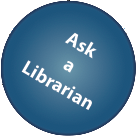Tech Tip: Check Your Engine
TECH TIP



CHECK YOUR ENGINE
THE PROBLEM
You understand the basics of online research but don’t know how to apply it to an academic setting.
THE FIX
Learn what research is considered scholarly: peer-reviewed academic journals (e.g., the Harvard Business Review), government Web sites (the Web addresses for U.S. government–sponsored Web sites usually end in .gov), or newspaper Web sites (like the New York Times or the Washington Post).
HOW TO DO IT
Unlike the examples above, much of the information you find online isn’t objective or factual; it’s a digital free-for-all out there. When looking for academic research, you need to filter out all the garbage.
Your college library offers free access to a lot of academic databases, LexisNexis, e-journals, and so on. As an example, visit the University Libraries Web site for Bowling Green State University (http:/

- Consult the Help or FAQs links. The first time you use any catalog, database, or search engine, use the Help or Frequently Asked Questions (FAQs) links to learn specific searching techniques. You will get the best results if you use the tips and strategies suggested by the database provider.
- Use search operators. A particular database or search engine may use a set of search operators, which are symbols (such as quotation marks, asterisks, or colons) or words (such as and, not, or or) added to keywords in order to narrow the results of a search. Check the database or site for basic and advanced search tips.
- Search more than one database or engine. Different ones might pull up very different sources.
- Check your library’s electronic resources page. Here you will see what else is available online. Most libraries have links to other commonly used electronic reference tools. These include online encyclopedias, dictionaries, almanacs, style guides, biographical and statistical resources, and news sources.
GOOD TO KNOW
Whether you use Bing, Google, or Google Scholar, you can learn tricks to refine your search.
KEY TIPS
- Don’t procrastinate. If you leave a big paper until the last minute, you’ll be more tempted to cut and paste and less careful about citing your sources.
- Avoid unintentional cheating. Whenever you copy online research into your notes, be sure to add the Web address in brackets at the end. While you’re at it, place quotation marks around all cited materials, or highlight them in a bright color. It’s surprisingly easy to forget which words are your own and which words came from another author.
- When in doubt, footnote. Using anything off the Internet without giving credit to the author is cheating, just as it is for using anything from any other source. Most colleges have a zero-tolerance policy on the subject.